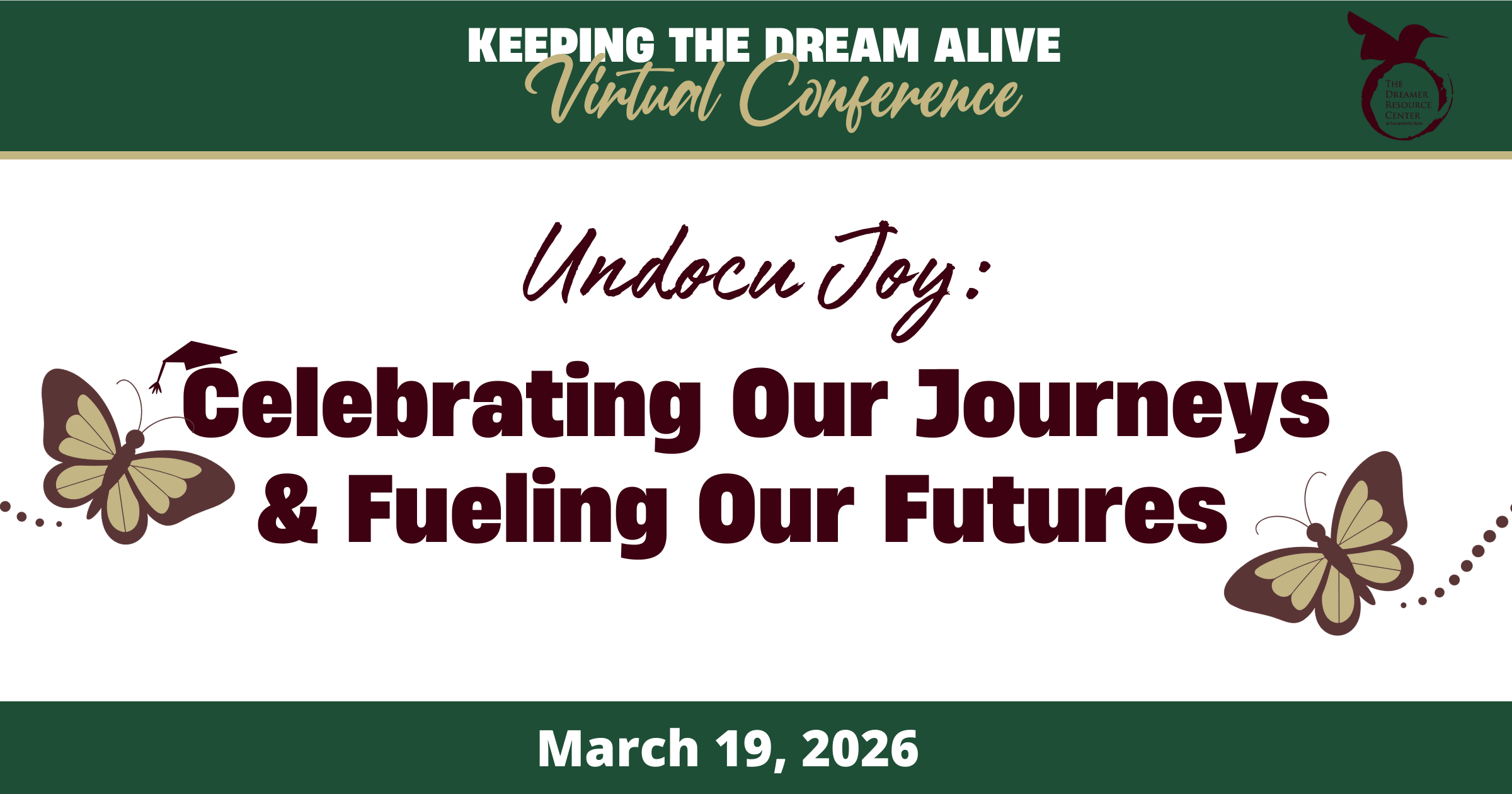Support Page Content
Annual Keeping the Dream Alive Conference
Keeping the Dream Alive Virtual Conference 2026
Save the Date: March 19th from 10 a.m. - 2 p.m.

Conference Overview
The Keeping the Dream Alive (KDA) Conference brings together dedicated educators, practitioners, and professionals nationwide with a shared commitment to supporting the success of undocumented and mixed-status students in the United States.
This online conference serves as a dynamic platform, connecting minds, ideas, and experiences from diverse regions, creating a rich tapestry of perspectives. KDA facilitates a national dialogue and offers a unique opportunity to exchange knowledge, discover innovative practices, and establish connections with like-minded individuals engaged in similar work.
This year's theme, "Undocu Joy: Celebrating our Journeys & Fueling our Futures," "Undocu Joy" acknowledges that joy is not only a feeling but also an act of resistance—a deliberate choice to celebrate our humanity, our achievements, and our dreams despite systemic obstacles. This conference will explore how educators and practitioners can create spaces that nurture joy, foster belonging, and affirm the full identities of undocumented students.
Areas of focus include:
- Building Community Care Networks
- Navigating Policy Changes and Know Your Rights
- Mental Health and Wellness in Times of Crisis
- Educational Access and Persistence
- Institutional Advocacy
- Celebrating Cultural Identity and Resistance Through Joy
KDA 2023 Highlights
Discover the captivating moments from the Keeping the Dream Alive 2023 Conference!
Registration
FREE registration for KDA will be launched early February!
We welcome and deeply appreciate any donations you are able to contribute. Please note: 100% of all donations go directly to our Student Emergency Fund, which provides critical support to Sac State students facing unexpected financial challenges such as emergency travel, legal fees, medical expenses, and other urgent needs.
To request ADA accommodations that will allow you to participate in this event, please contact drc@csus.edu no later than five (5) business days prior to the event.
Contact Us for Support
Please contact the Dreamer Resource Center for support with registration or any question you may have.
Phone: (916) 278-7734
Email: drc@csus.edu